Deploy creates inflatable concrete water tanks for victims of Turkey-Syria earthquake
Royal College of Art graduates Paul Mendieta and Beren Kayalı have designed a water tank called Deploy, which has been donated to people in Turkey who have been devastated by the recent earthquake.
Deploy is a 256-kilogram structure that can be assembled and inflated on-site and is ready to be used within 48 hours. It has an expected lifespan of 20 years and can hold 14,000 litres of water.
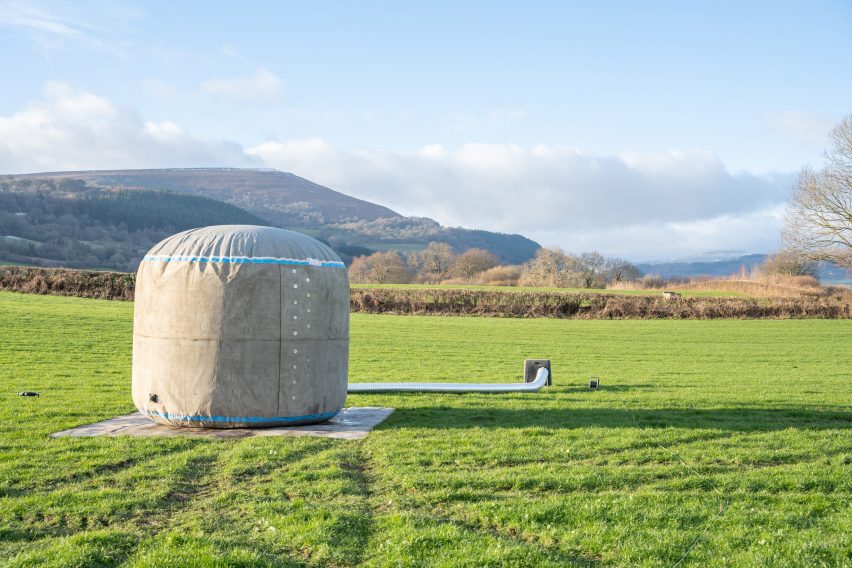
"Deploy is a flat-packed, inflatable, concrete water storage tank that can fit on a standard pallet to be transported anywhere in the world," co-founder of Deploy Beren Kayalı told Dezeen.
"We assist rural communities with water requirements and resolve logistical issues for rural areas including farmers, infrastructure projects and disaster relief occurrences," she said.
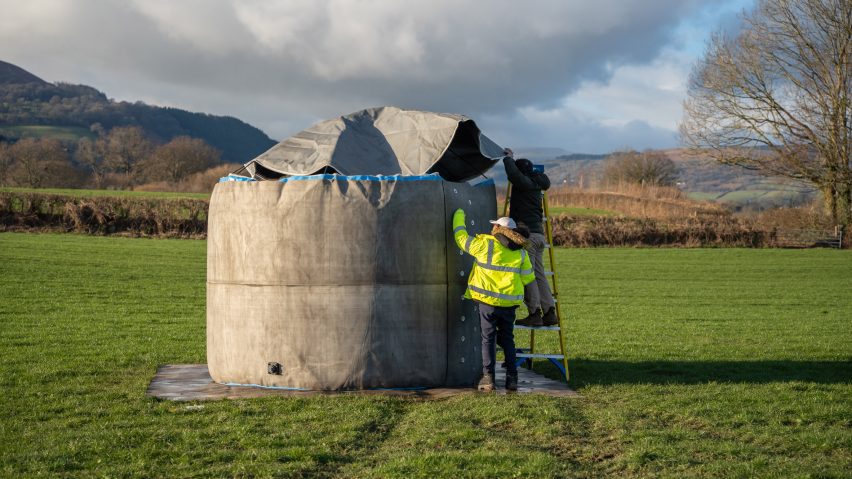
The tank, which the company describes as "the first-ever air deployed, ready-to-use water tank" is made from a patented material called Concrete Canvas, which is formed of cement layered between fabric and a PVC liner.
The award-winning material has previously been used to cover disaster-relief shelters.
Each 2.5-metre tall tank also has several fibreglass poles to support the structure.
The tanks are manufactured in Pontyclun, Wales, where the material is folded by a forklift and packed into wooden pallets, ready to be shipped to places where water scarcity or quality is a problem.
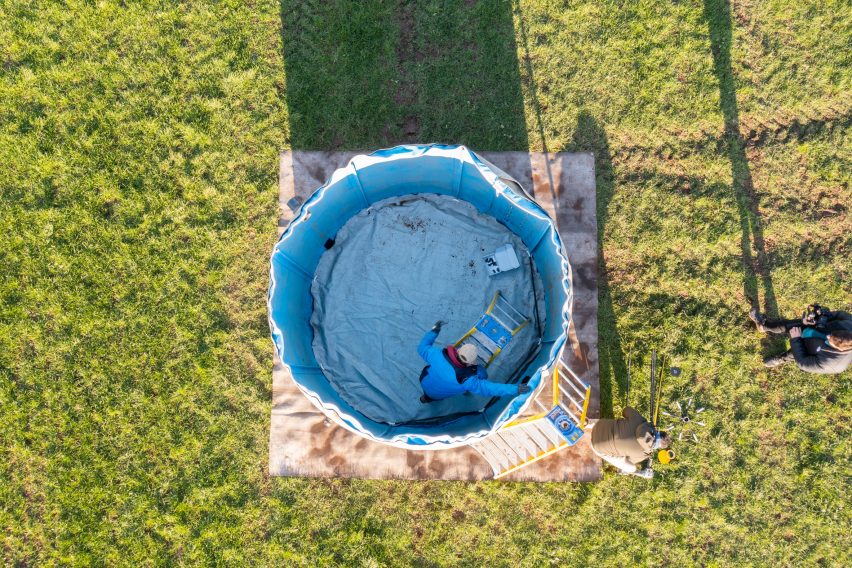
The flat-packed tanks are then air deployed from a helicopter to the ground, where at least two Deploy team members are required to assemble and install the tank on-site.
To do so, they lay a concrete slab on the ground, which acts as a base for the water tank. An electronic air pump is used to inflate the tank "like a giant balloon" before it is sprayed with water from a hose until fully hydrated.
Once hydrated, it can be manipulated for a few hours before hardening into a solid fireproof and waterproof structure. It sets fully within 24 hours and is then ready to be filled with drinking water.
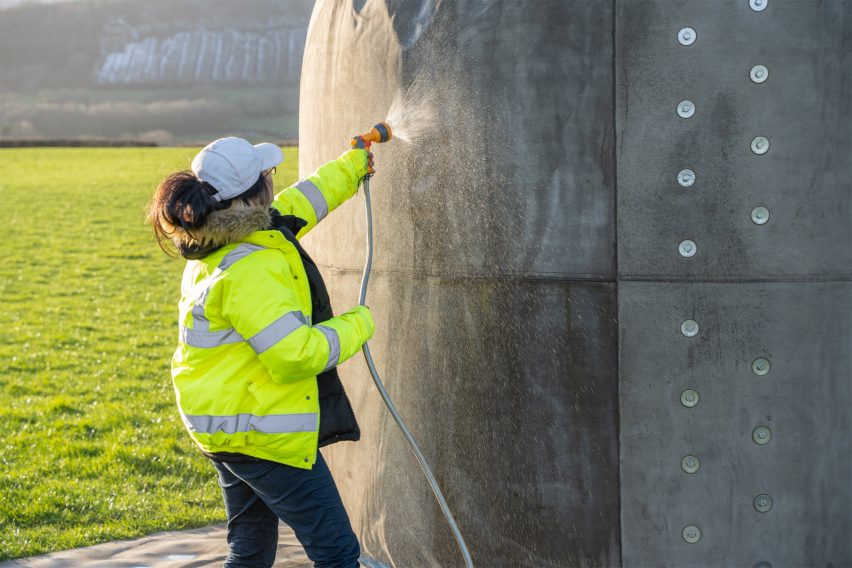
Deploy recently donated 14 tanks to victims in Turkey following major earthquakes that struck Turkey and Syria on 6 February.
The destruction of homes and buildings has meant that access to safe drinking water and sanitation is under threat, leaving communities vulnerable to a host of waterborne diseases.
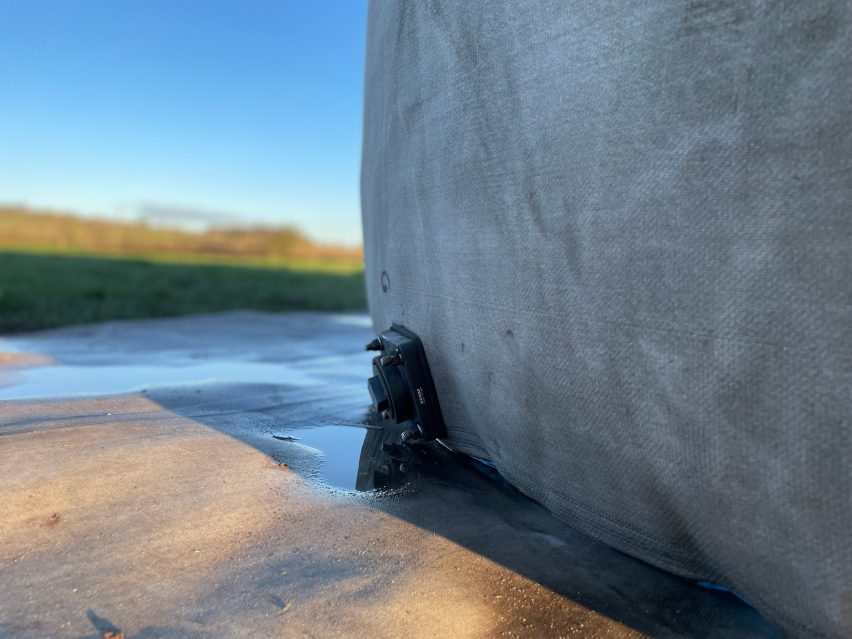
The idea is that once in use, local communities on the ground in Turkey are able to maintain and easily repair the tank with everyday tools, without requiring additional support from Deploy.
"Two of the Deploy water tank key features are its detachable lid and floor-level outlet valve. Together these allow for full water tank drainage and easier access to the tank interior, allowing for cleaning methods similar to that of a swimming pool," Kayalı said.
"The concrete canvas layer is self-repairable from punctures, with the shape recovering once filled with water."
Mendieta and Kayalı originally developed Deploy as part of their innovation design engineering master's at the Royal College of Art (RCA) in 2020.
Kayalı believes that its tanks are a more affordable and sustainable alternative to its plastic or concrete competitors.
"A traditional concrete water tank of matching volume additionally requires a considerable construction team with a dedicated timeline, with the concrete material then requiring 21 to 28 days to solidify," Kayalı explained.
"A traditional plastic water tank with matching capacity requires large transportation techniques owing to a typical diameter of three metres," she continued.
"For example, three plastic water tanks are able to fit in an industrial shipping container, whereas 18 Deploy water tanks are possible, owing to the flat-pack reality."
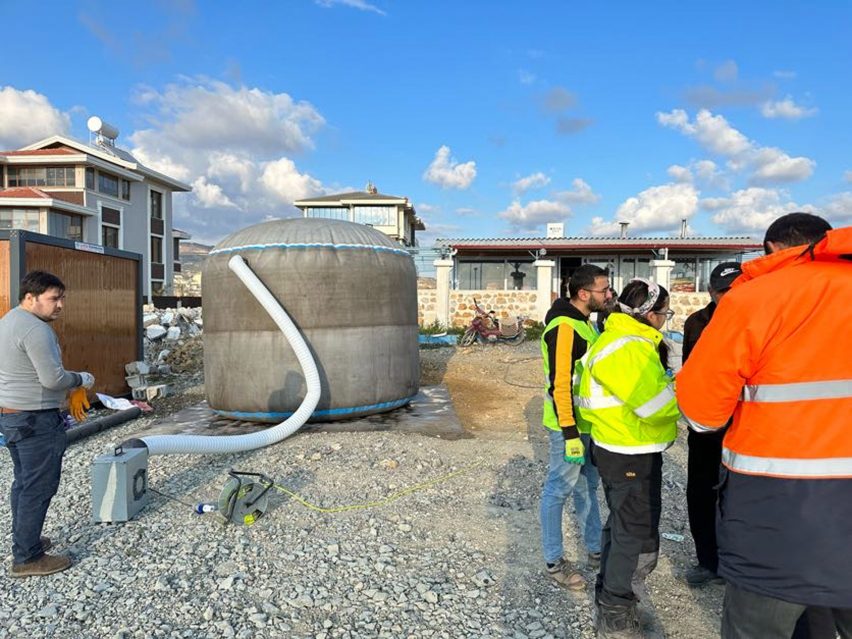
The recent earthquake in Turkey-Syria prompted local architects to speak out about what they see as poor construction in the country. Architect Alper Deri̇nboğaz told Dezeen that "[the damage] is due to the poor quality of the buildings in the affected region".
Others called for improvements to both architectural education and practice to prevent history from repeating itself.
Meanwhile, Pritzker Architecture Prize-winning architect Shigeru Ban donated his Paper Partition System, which is made from cardboard tubes and fabric, to evacuation centres housing victims.
The photography is courtesy of Deploy.